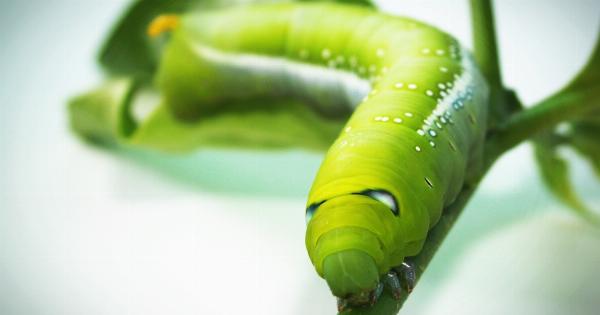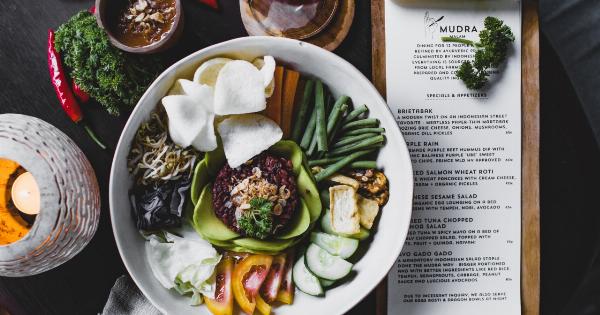Plant-based diets have gained popularity in recent years due to their potential health benefits and ethical considerations.
However, one common concern among individuals considering a plant-based diet is whether they can effectively build muscle without consuming animal protein. This article will explore the science behind muscle building and whether vegans can achieve their fitness goals on a plant-based diet.
The Importance of Protein for Muscle Building
Protein is an essential nutrient when it comes to muscle building. It provides the necessary amino acids that our bodies require to repair and build new muscle tissue.
Animal-based sources of protein, such as meat, eggs, and dairy products, are often considered complete proteins as they contain all the essential amino acids in the right proportions.
On the other hand, plant-based sources of protein are often considered incomplete proteins as they lack one or more essential amino acids.
However, by combining different plant-based protein sources, vegans can easily meet their amino acid requirements and build muscle effectively.
Quality Plant-Based Protein Sources
Vegans can obtain high-quality protein from a variety of plant-based sources. Here are some examples:.
1. Legumes
Legumes such as lentils, chickpeas, and black beans are excellent sources of protein. They are not only high in protein but also provide a good amount of fiber and other essential nutrients.
2. Quinoa
Quinoa is a complete protein, meaning it contains all the essential amino acids. It is also rich in fiber, minerals, and antioxidants, making it a great addition to a vegan muscle-building diet.
3. Tofu and Tempeh
Tofu and tempeh are made from soybeans and are popular protein sources for vegans. They are versatile and can be used in various dishes, providing a good amount of protein along with other beneficial nutrients.
4. Seitan
Seitan, also known as wheat meat or wheat gluten, is a high-protein food made from gluten. It is particularly popular among athletes and bodybuilders due to its muscle-building potential.
5. Nuts and Seeds
Nuts and seeds, such as almonds, walnuts, chia seeds, and hemp seeds, are not only rich in protein but also contain healthy fats and other essential nutrients.
They can be easily incorporated into a vegan muscle-building diet as snacks or toppings for various dishes.
Vegan Athletes and Bodybuilders
There are numerous examples of vegan athletes and bodybuilders who have achieved remarkable muscle growth and performance on a plant-based diet.
One prominent example is professional bodybuilder Nimai Delgado, who has built an impressive physique without consuming any animal products.
Other vegan athletes, such as UFC fighter Nate Diaz and professional tennis player Venus Williams, have also adopted plant-based diets and found success in their respective sports.
These examples demonstrate that it is indeed possible to build muscle and excel in athletic performance without relying on animal protein.
The Role of Macros and Calories
While protein is important for muscle building, it is crucial to consider the overall macronutrient balance and calorie intake. To build muscle, individuals need to consume a calorie surplus, which means consuming more calories than they burn.
Along with sufficient protein intake, vegans should focus on consuming an adequate amount of carbohydrates and healthy fats.
Carbohydrates provide energy for workouts and aid in muscle recovery, while healthy fats support hormone production and overall health.
Meal Planning and Macronutrient Tracking
To ensure sufficient protein intake and overall macronutrient balance, vegans looking to build muscle can benefit from meal planning and macronutrient tracking.
There are several online tools and apps available that can help individuals monitor their calorie and macronutrient intake.
By tracking their meals and adjusting their macronutrient ratios if necessary, vegans can optimize their muscle-building potential and reach their fitness goals effectively.
The Importance of B vitamins and Iron
Vegan athletes and bodybuilders should also pay attention to their intake of certain nutrients, such as B vitamins (especially B12) and iron.
These nutrients are commonly found in animal-based sources, so vegans need to ensure they are obtaining them from fortified foods or supplements.
B vitamins, including B12, play a crucial role in energy metabolism and red blood cell production. Iron is essential for carrying oxygen to the muscles and preventing fatigue.
Vegans can obtain B vitamins from nutritional yeast, fortified plant-based milk, and supplements. Iron can be found in foods like spinach, lentils, and fortified cereals.
The Role of Supplements
While it is possible to obtain all the necessary nutrients from a well-planned vegan diet, some individuals might choose to supplement certain nutrients to ensure optimal muscle building and overall health.
In addition to B12 and iron, vegans might consider supplementing with creatine, omega-3 fatty acids (such as those derived from algae), and protein powders made from plant-based sources like pea, rice, or hemp.
Conclusion
Vegans can definitely build muscle effectively without consuming animal protein. Plant-based protein sources, when combined properly, can provide all the essential amino acids required for muscle growth and repair.
Along with a well-planned macronutrient ratio and sufficient calorie intake, vegans can achieve their fitness goals and excel in athletic performance.
By paying attention to key nutrients, such as B vitamins and iron, and considering appropriate supplementation, vegans can ensure they are meeting their nutritional needs for optimal muscle building.
Embracing a plant-based lifestyle does not mean compromising on muscle gains; it simply requires a thoughtful approach to nutrition and sufficient knowledge of the diverse plant-based protein sources available.




























